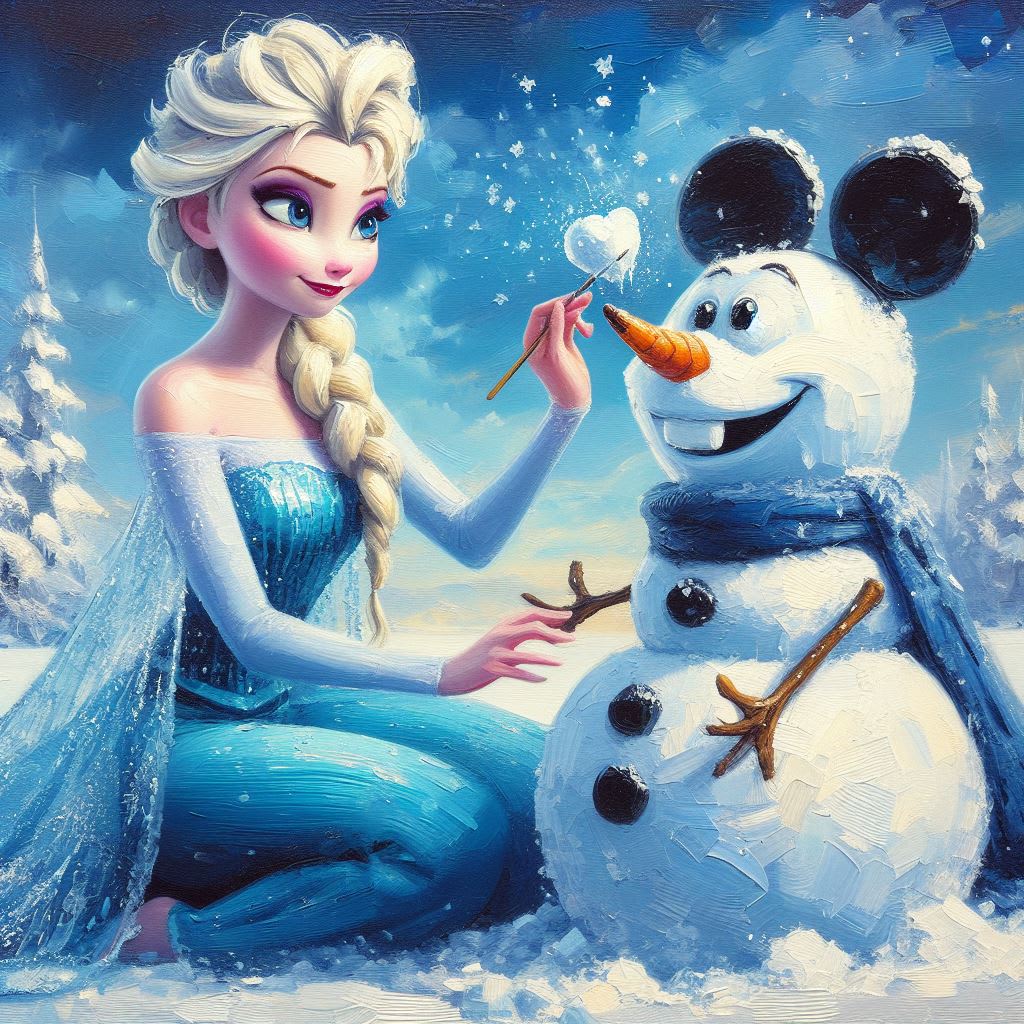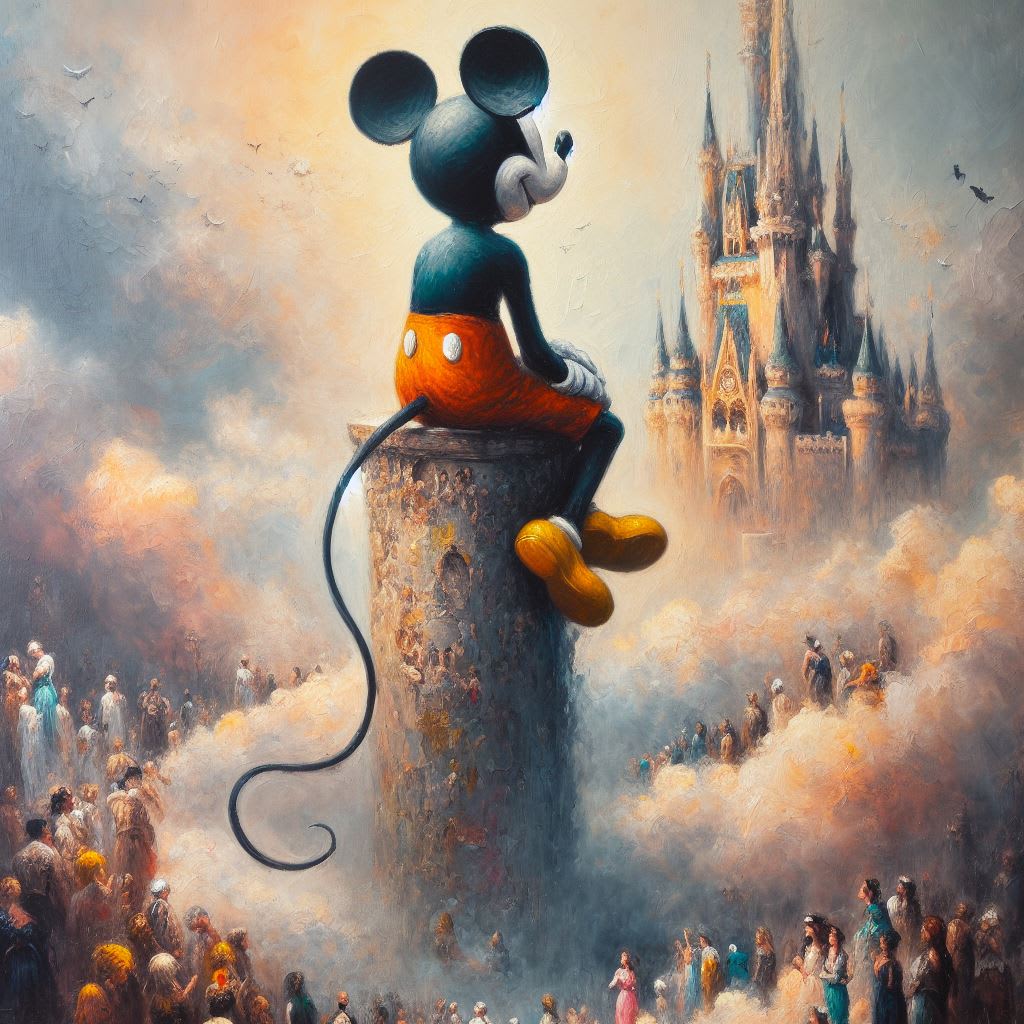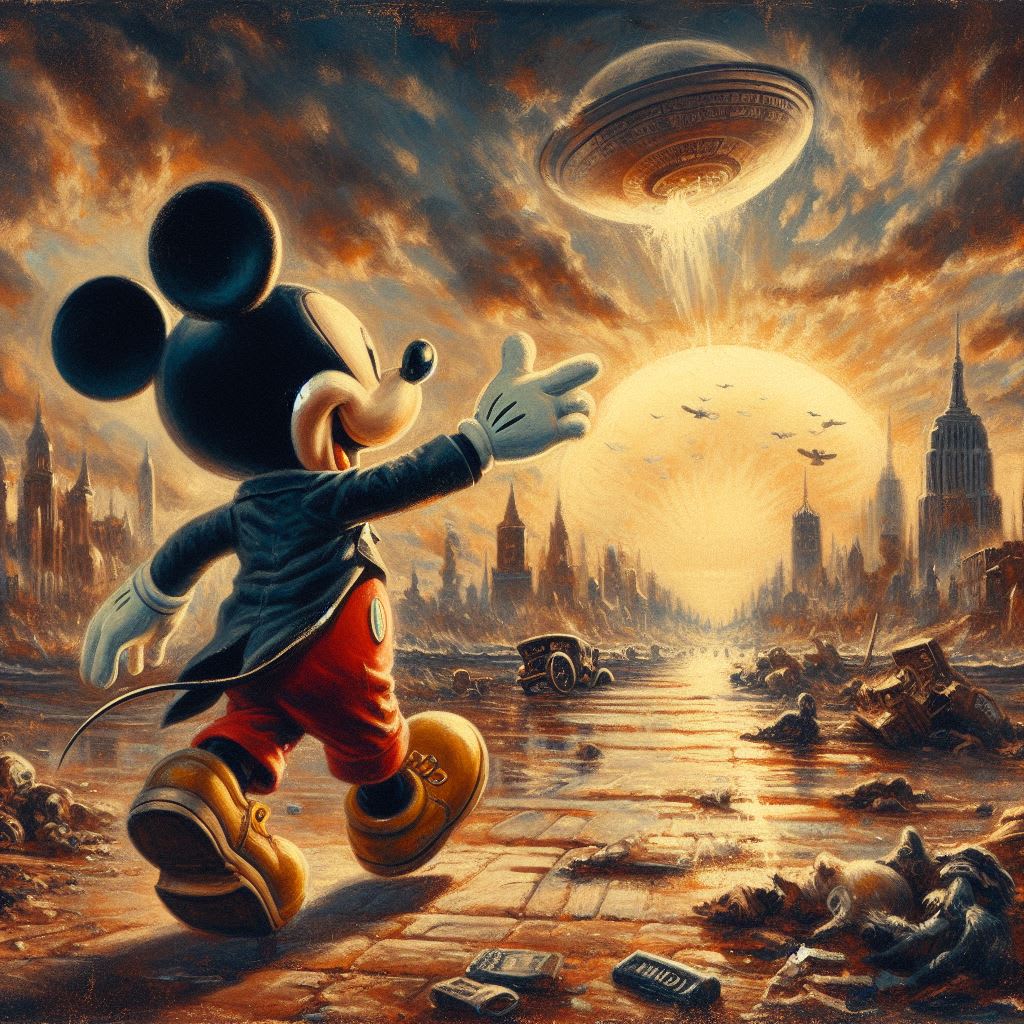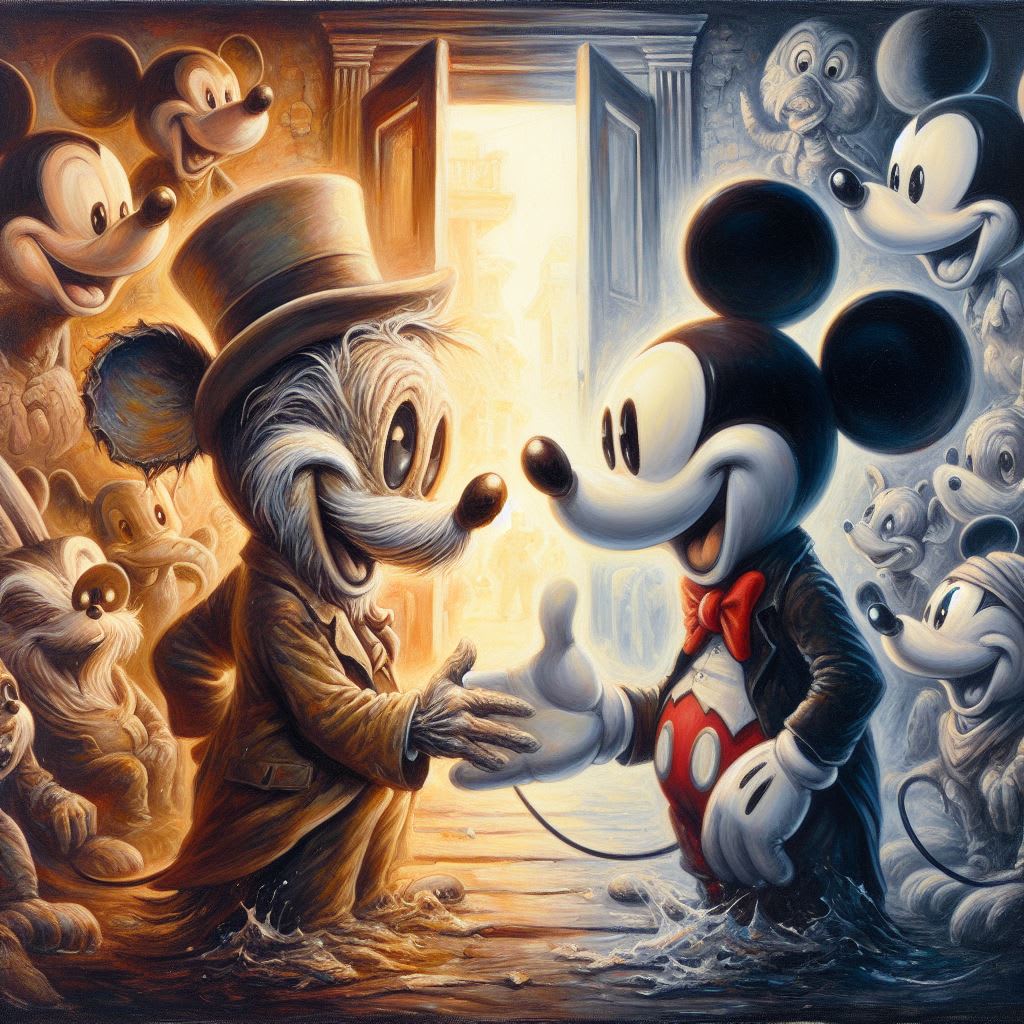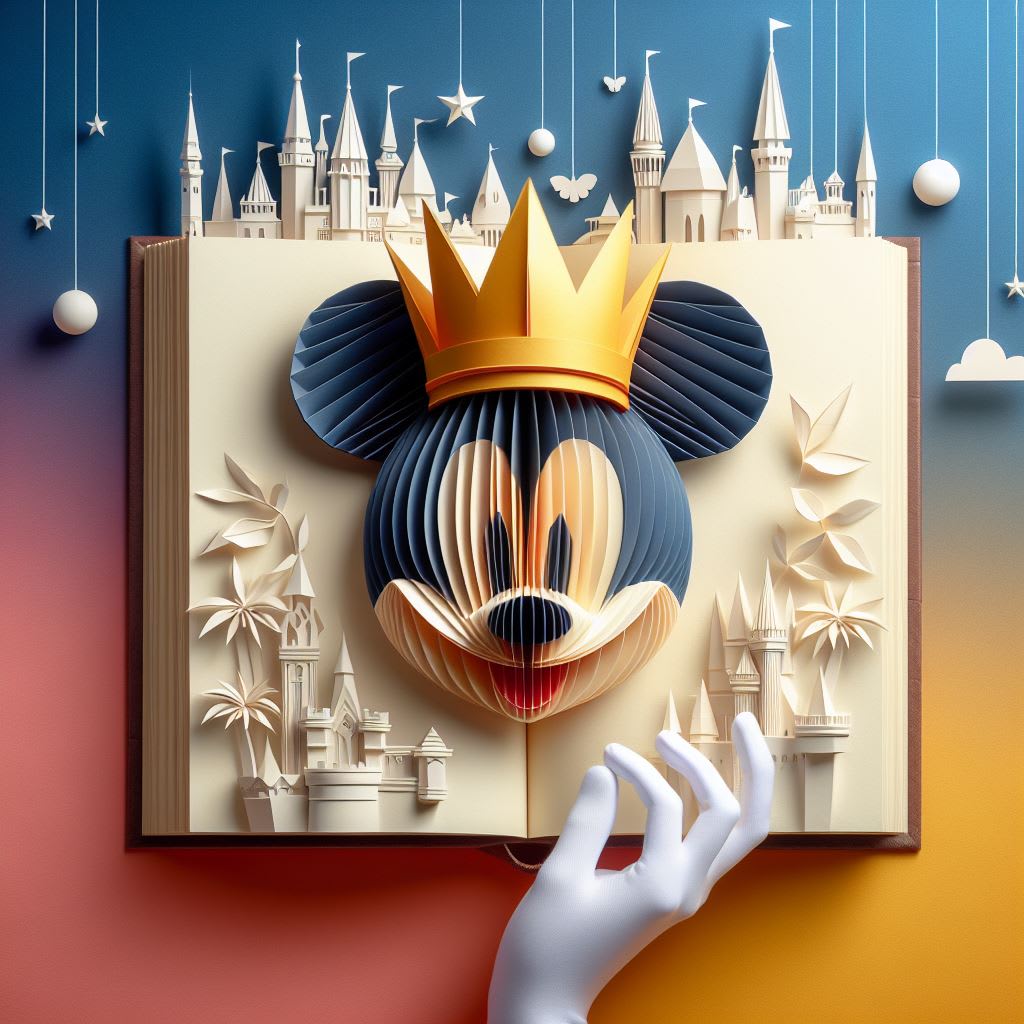Letting Go of the Past: Disney Relaxes Grip on Classic Characters
The iconic Mickey Mouse is approaching a significant milestone: his entry into the public domain on January 1st, 2024. This event, while seemingly straightforward, carries complex legal and creative implications.
For decades, Disney has fiercely guarded its intellectual property, wielding copyright protection like a shield around its beloved characters. Mickey Mouse, Donald Duck, Pluto, and countless others have become synonymous with the Disney brand, fueling its immense success. But now, a surprising shift is taking place: Disney is letting go.
The catalyst for this change is simple: evolution. As Disney's portfolio has expanded to include massive franchises like Marvel, Star Wars, and Pixar, the relative importance of its earlier characters has diminished. Mickey Mouse, once the cornerstone of the empire, is now just one piece of a much larger puzzle.
Mickey's Copyright History: A Tale of Extensions
Disney's copyright in Mickey Mouse was originally set to expire in 1984. However, through lobbying efforts, Disney successfully extended the copyright twice. The Copyright Term Extension Act of 1998, nicknamed the "Mickey Mouse Protection Act," and “Sonny Bono Extension Act,” added 20 years to the copyright term for works created after 1978. This was followed by the Copyright Term Extension Act of 2019, further extending copyright protection by 20 years. These extensions ensured Mickey Mouse remained under copyright protection until 2073, but only for versions created after "Steamboat Willie."
Copyright law is a complex and evolving area, and the duration of copyright terms is a constant source of debate. Some argue that copyright terms are already too long and stifle creativity. Others maintain that longer terms are necessary to incentivize creators and recoup investment costs. The entry of Mickey Mouse into the public domain serves as a test case for these arguments, potentially influencing future copyright reforms.
Public Domain Implications: A New Era for Mickey
The realization that the original Mickey is no longer the cornerstone of Disney has prompted a strategic shift. Instead of expending resources on eternally extending copyrights, Disney is adopting a more relaxed approach. They recognize the futility of fighting the tide of time. Even once a character enters the public domain, the sheer power of the Disney brand makes it likely that any creative use of the character will ultimately find its way back into their sphere of influence.
With the "Steamboat Willie" version entering the public domain, anyone can use this specific version of Mickey Mouse without permission. This opens the door to a new wave of creative works featuring the iconic character, potentially including reinterpretations and even horror movies. Pluto is due to enter the public domain in 2024, and Donald Duck is scheduled to enter in 2028, further diversifying the landscape of available characters.
This shift in strategy carries several benefits for both Disney and the creative community. Disney can focus resources on developing new intellectual property while still enjoying the inherent brand loyalty associated with its classic characters. For creators, the public domain opens up exciting opportunities to reimagine and reinterpret beloved characters, potentially creating new works that resonate with modern audiences.
The Future of Mickey: Collaboration, Acquisition, or Independence?
This isn't to say Disney is completely abandoning its copyright protection. The company still maintains a robust legal team to safeguard its valuable trademarks and intellectual property. However, they are acknowledging that a more relaxed and flexible approach can be mutually beneficial, allowing creative freedom to flourish while still protecting their core brand identity.
The entry of Mickey Mouse into the public domain presents a unique opportunity for creators and companies. Disney has several options to respond to this development. They could collaborate with companies using Mickey Mouse in a way that aligns with their brand. They could form strategic partnerships, allowing them to leverage others' work while maintaining control over their character. Or, they could acquire successful Mickey Mouse creations to integrate them back into their portfolio. However, independent studios and creators also have the potential to create successful works featuring Mickey Mouse, potentially challenging Disney's dominance.
As Mickey Mouse and other classic characters venture into the public domain, we can expect a wave of creative reinterpretations and adaptations. This influx of new perspectives will undoubtedly breathe new life into these iconic figures, ensuring their continued relevance for generations to come. This demonstrates both the enduring power of storytelling and the cyclical nature of creativity, where yesterday's classics become tomorrow's inspiration.
Conclusion: A New Chapter for an Iconic Character
The entry of Mickey Mouse into the public domain marks a significant milestone in the character's history. It opens up new creative possibilities and raises important questions about copyright law and intellectual property rights. While Disney still enjoys significant control through trademark protection, the future of Mickey Mouse remains open-ended, offering exciting possibilities for creators and the public alike. The coming years will reveal how Mickey Mouse will be interpreted and reimagined in this new era of public domain.
Ultimately, Disney's decision to relax its grip on its classic characters is a recognition of the evolving entertainment landscape. It's a move that acknowledges the limitations of copyright protection in an ever-evolving creative environment. As we enter this new era, it's clear that the most valuable assets are not simply characters trapped in legal documents, but the stories they inspire and the emotions they evoke. And in that realm, Disney remains the undisputed king.
Author: Stephen Miller, 11.27.23
The views, information, and opinions expressed in this article are those of the author(s) and do not necessarily reflect the views of livingonwhidbey.com, its subsidiaries, or its parent companies.
Copyright © 2023
references:
University of California Copyright Guide. "Public Domain." https://security.berkeley.edu/copyright-regulations-and-resources. Accessed 11 Dec. 2023.
Roychoudhury, Adrija. "How Disney Routinely Exerted Influence on the US Copyright Law to Keep Its Greatest Asset - Mickey Mouse." WIONews.com, 10 Oct. 2022, https://www.mynewsdesk.com/sg/pitchmark/news/bill-introduced-to-strip-disney-of-its-copyright-protection-for-mickey-mouse-may-bring-into-question-us-global-commitments-to-its-ipr-treaties-448575. Accessed 11 Dec. 2023.
Gerben Law Firm. "Disney's Trademark Portfolio." Gerben Law Firm LLP, 20 Nov. 2023, https://www.gerbenlaw.com/. Accessed 11 Dec. 2023.
Whitbrook, James. "Mickey Mouse Copyright Expiration Explained: Why He's Entering the Public Domain." Screen Rant, 24 Mar. 2022, https://artrepreneur.com/journal/disney-copyright-keeps-changing/. Accessed 11 Dec. 2023.
TitleMax. "Disney Companies List: All the Companies Disney Owns Worldwide." TitleMax, 12 Sept. 2023, https://www.titlemax.com/about-us/. Accessed 11 Dec. 2023.
"Why Disney's Most Iconic Character is Entering the Public Domain (Lawyer Explains)." YouTube, uploaded by Corridor Crew, 10 Oct. 2022, https://www.youtube.com/watch?v=u2dIvUAd5QE. Accessed 11 Dec. 2023.

